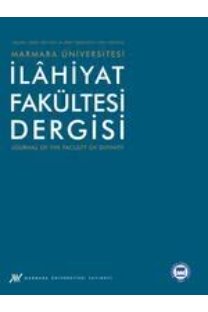“Arkasından Ağlanması Sebebiyle Ölüye Azap Edilir” Hadisine Sosyo-Kültürel Bağlamda Bir Yaklaşım
ÖzetÇağdaş İslâm düşüncesinde eleştiri konusu yapılan temel alanlardan biri hadistir. Güvenilirliğinin tespiti, hadise yöneltilen en önemli eleştiriler arasında yer alır. Birçok İslâm araştırmacısı bir hadisin sıhhatinin tesbitinde metin tenkidine gereken önem verilmediği için metni sahih olmayanbirtakım rivâyetlerin temel hadis kaynaklarına girdiğini iddia ederek bu iddiayı isbat sadedinde bazı örnekler verir. Bu örneklerden biri, kısaca “ta‘zîbü’l-meyyit” hadisi diye bilinen “yakınların ağlaması sebebiyle ölüye azap edilir” rivâyetidir. İşte bu makalede sosyo-kültürel tarihî bağlamdasöz konusu hadis tahlil edilerek yukarıdaki iddiayı ispata elverişli bir örnek olup olmadığı ortaya konmaya çalışılacaktır.Anahtar Kelimeler: Niyâha, bükâ, ta'vîl, na’y, ta‘zîbü'l-meyyit, ağıt yakmak, yas töreni, ölüye ağlamak, ölüye azap etmek.AbstractIt’s known that the hadith (prophetic tradition) is one of the subjects criticized in contemporary Islamic thought. The problem of determination of hadith’s authenticity gets an important share in the criticism of text in hadith wasn’t interested on enough as well as on isnad and thereforesome non-authenic narrations had been place in the most valid sources of hadith. They try to prove this claim by giving some examples of narrations. One of these examples is the hadith: “The dead who was cried on him by his family would be tortured.” So this article approches the narration above in point of socio-cultural view and aims to expose that if it was an authentic narration or not. Key Words: Lamentation, load weeping for the dead, wailing, helping on the lamentation, elegy, mourning, tormenting the dead.
Anahtar Kelimeler:
Niyâha, bükâ, ta'vîl, na’y, ta‘zîbü'l-meyyit, ağıt yakmak, yas töreni, ölüye ağlamak, ölüye azap etmek
- ISSN: 1302-4973
- Başlangıç: 1963
- Yayıncı: Marmara Üniversitesi
Sayıdaki Diğer Makaleler
Râgıb el-İsfahânî’de İnsan Tasavvuru
Transpersonel (Benötesi) Psikoloji
David WULFF, ALİ MEHMEDOĞLU, SALİHA UYSAL, Saliha UYSAL
Hüseyin Azmî Dede ve Beyânü’l-Makāsıd Adlı Risâlesi
Fürû‘ Fıkıh Sistematiği Üzerine
el-kıtal fî sebilillah ve tedâiyatyuhu ke şiarin islamiyyin
“Arkasından Ağlanması Sebebiyle Ölüye Azap Edilir” Hadisine Sosyo-Kültürel Bağlamda Bir Yaklaşım
Tanrı-Evren İlişkisi ve Mûcize Sorunu Açısından Determinizm, İndeterminizm ve Kuantum Teorisi
“Homo Homini Lupus”: Thomas Hobbes’un Ahlâk Felsefesi Üzerine
Bağdat Eyaletindeki Atebat’a Şiî Cenaze Nakli ve Karantina (XIX. Yüzyıl-XX. Yüzyıl Başları)
